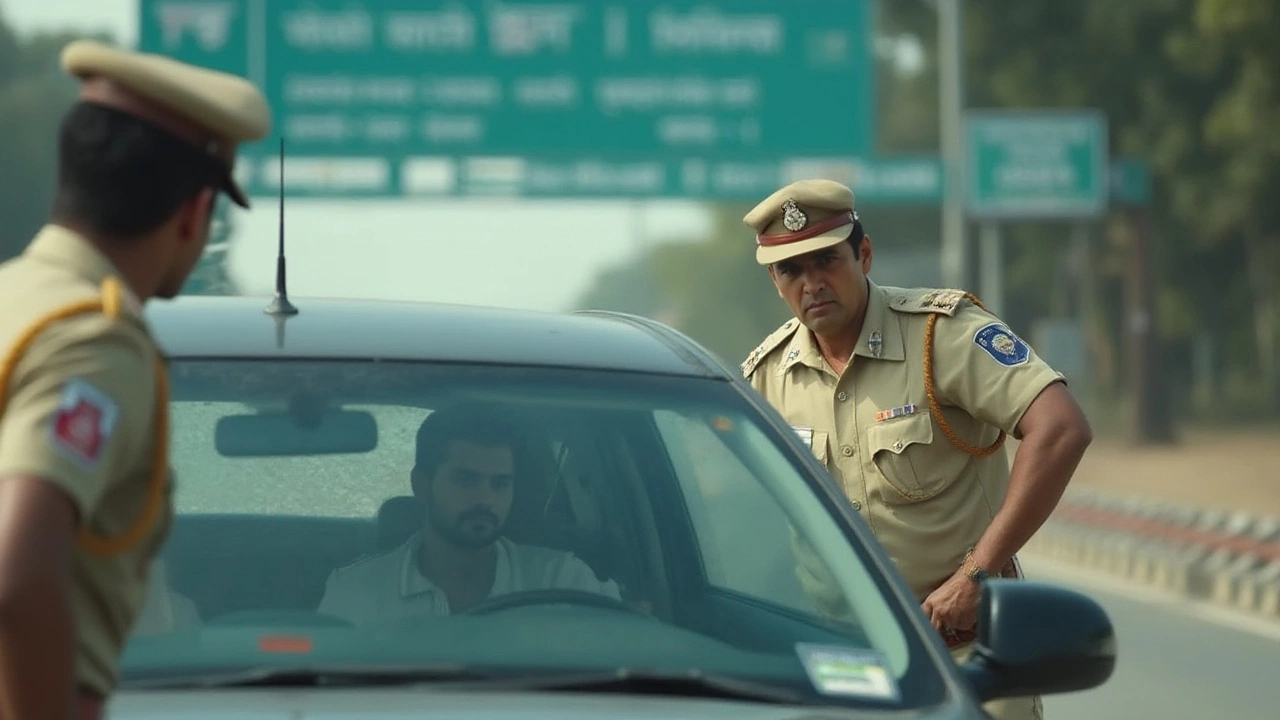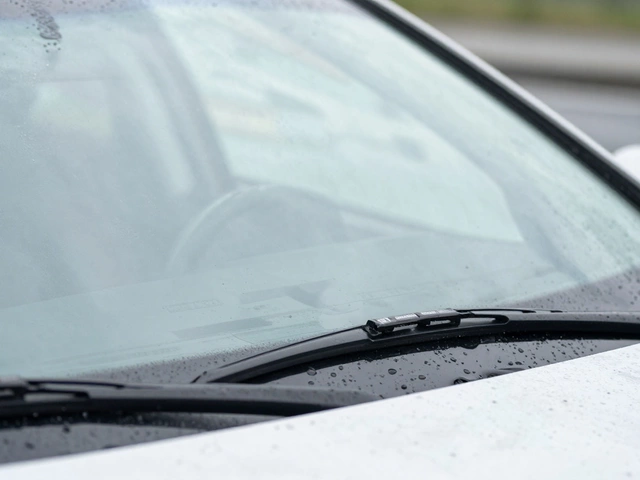Ever had a moment when bugs, dirt, or salty winter sludge splatter across your windshield, and nothing comes out when you hit the wiper stalk? It happens more than you’d think. Most drivers—me included—have heard that little cough from the washer jets before realizing the wiper fluid reservoir is bone dry. But is running on empty wiper fluid something you can just shrug off, or is it really a big deal for your safety, your wallet, or the law?
If you’re just using your car to go a block for takeaway, hey, what’s the worst that could happen, right? But it's not that simple. Let’s pick this apart to find out if it’s really OK to drive without wiper fluid on standby—or if you’re gambling more than you think every time you skip filling up that plastic jug under the hood.
What Happens When You Drive Without Wiper Fluid?
Maybe you’ve been there: some mysterious gunk appears on your windshield, and your wipers streak it into an opaque mess instead of clearing it. That’s when you discover your washer fluid’s gone dry. You might think it’s just an annoyance, but there’s more at stake than a dirt-speckled windshield.
Your windshield is your window to the world—literally. When it’s grimy, your view is compromised. Dirt, bugs, tree sap, bird droppings, and even pollen can stick stubbornly to the glass. Without fluid, your wipers can smear the mess or even scratch the glass from gritty debris. A 2023 highway safety study found that one in eight accidents in poor weather started with ‘impaired vision’ due to obscured windshields—most of those drivers had no working wiper fluid. It’s a domino effect: no fluid, no clear view; no clear view, you’re playing roulette with your safety.
The nastiest part is you might not even notice trouble right away, especially on a sunny day. But try driving behind a truck in springtime mud, or in the winter when road salt flies up, and see how quickly you “miss” that fluid. You’re blind in seconds. Add in night driving or low-sun glare, and a dirty windshield turns ordinary glare into a blinding wall.
Here's another twist: using your wipers dry, instead of helping, can actually damage the blades, scratch your glass, or even overheat your wiper motor. If you keep this up, those streaks aren’t just ugly—they’re permanent scratches in your line of sight. And believe it or not, a replacement windshield costs a small fortune, often $600 or more for modern vehicles with sensors.
So, while it might feel minor, skipping the wiper fluid can quickly spiral into real driving hazards and unexpected repair bills. Frankly, even the best wiper blades can’t do much if there’s no fluid to help.

Legal Risks and Road Regulations: Is It Actually Illegal?
You might be thinking, “OK, but surely the cops aren’t handing out tickets for empty wiper fluid?” Actually, in plenty of places, it’s against the law to drive without a working windshield washer system. Let’s look at a snapshot table of what’s expected around the English-speaking world:
| Country/Region | Legal Requirement | Penalty for No Wiper Fluid |
|---|---|---|
| USA (most states) | Wipers + fluid required if fitted | Fines ($50-$150), failed vehicle inspection |
| UK | MoT failure if faulty/empty | £50-£100 fine, 3 points |
| Canada | Mandatory in winter | Fines up to $200 |
| Australia | Legally must work | $110 fine, defect notice |
| EU Countries | Mandated for all vehicles | Varies (€30–€100) |
So, yeah, you actually can be fined just for not having working washer jets. And spot checks really do happen—especially during winter or rainy periods when visibility matters most. A British police survey from 2022 showed about 5% of drivers stopped for “unclear windshields” ended up getting a fine or warned to sort their fluid immediately.
And if you go in for an annual vehicle safety test with no washer fluid, you could literally fail the inspection. Your car gets flagged, and you can’t legally drive it until it’s sorted—which can add up to lost time and extra wallet pain.
The law’s not about being a buzzkill. It’s built on the very real risk of impaired visibility leading to crashes. Neglect the washer fluid, and you could be held legally responsible for an accident. Legal cases in the U.S. and UK have seen drivers landed with ‘contributory negligence’ claims because their windshield was dirty and they couldn’t react to a hazard in time.
So driving *without* wiper fluid isn’t just risky for you and your car—it can leave you on the wrong side of the law, too. Keeping that reservoir topped up is not only good sense but often a straight-up legal requirement.

Clever Tips, Safe Swaps, and Secret Lifehacks
Now, sometimes you just forget to buy wiper fluid (guilty, right here). Or maybe you’re miles from a store when you realize you’re out. Don’t panic—here’s what you can do to avoid disaster until your next pit stop.
- Don’t use plain water in cold weather: Sounds easy, but pure water freezes below 32°F (0°C). That’s why commercial washer fluid comes with antifreeze agents. Water in the lines can freeze solid, crack your tank, and kill the pump. In summer it’s less risky, but water alone can build up minerals, encourage mold, or turn gross in hot weather.
- DIY emergency mix: If you’re desperate, add a few drops of mild dish soap to a gallon of water in warm weather for an emergency fill. In winter, teensy splash of standard rubbing alcohol (isopropyl) will keep it from freezing. But don’t rely on this for long, as it doesn’t clean as well or protect your system as much as proper fluid.
- Rain-X or similar additives: If you’ve got none, Rain-X or supermarket window cleaner can work in a pinch—just never use anything harsh like coolant, bleach, vinegar, or high-strength alcohol, as these will wreck hoses, damage paint, or leave awful streaks.
- Keep a backup bottle: Many drivers stash a spare jug of washer fluid in the trunk. It weighs little, costs less than a fancy coffee, and could save your day. If you live somewhere with real winters, always use fluid rated for at least -20°F (-29°C).
- Check before you drive off: It takes five seconds to blast the washers before a trip. If the flow is weak, fill up before you hit the road. Get in the habit and you’ll skip most of these headaches.
- Change wiper blades regularly: No fluid means your blades dry out and wear faster, but even with fluid, they’re a wear item. Swapping blades every 12 months means you’re ready for the next sudden squirt—or streaky rainstorm.
Want a pro tip? Some higher-end car models warn you with a dash light when fluid runs low. But if your ride doesn’t have a warning sensor, keep an eye on how often you use your washers—city dwellers need it more in spring and winter, while rural drivers might get caught off guard after a muddy field detour. Watching your usage can stop you getting caught out.
Finally, let’s clear up some rumors. Blue and green wiper fluids work the same, just different dyes. Premium fluids (“bug remover” or “rain repellent”) don’t harm your car, but they cost more and might work better in tough seasons. And using *any* kind of car antifreeze/coolant as washer fluid? Big no. That stuff will strip paint, eat rubber gaskets, and could mess with your lungs if sprayed on glass and inhaled. Always go for washer fluid, unless you’re in serious survival mode.
So bottom line, driving without washer fluid risks your safety, could land you a ticket, and can cost you in scratches, wiper blade wear, or even a busted wiper motor. It takes two minutes—and less than a couple dollars—to keep your vision crystal clear. With all the things you can fix on a car, this one's so easy, it’s almost criminal not to do it.




